
I’m of the opinion that the regular Pixel 9 is no longer the best base model at its suggested $799 retail price, but what about the newly announced Galaxy S25? Here’s how these two compare.
Why are we comparing the Pixel 9 to the base model Galaxy S25? Well, for the past couple of years, Google has offered an incredible package at under $600, that changed this year and now it’s a whole $200 more for effectively the same package. Because of that, I personally don’t think the Pixel 9, at its $799 start price, is the best base model on Android anymore. It’s a fantastic package, but not quite worth that. You should only buy it with substantial discounts and rebates.
- Pixel 9 vs. Pixel 9 Pro: Smaller, smarter, similar [Video]
The S25 also costs $799. That means it’s vying for the same buyer pool as the Pixel 9 more than ever before. There are many similarities between these two – including the start price. Which is the best option for someone looking for a new Android phone? This is everything you need to know.
Hardware and design
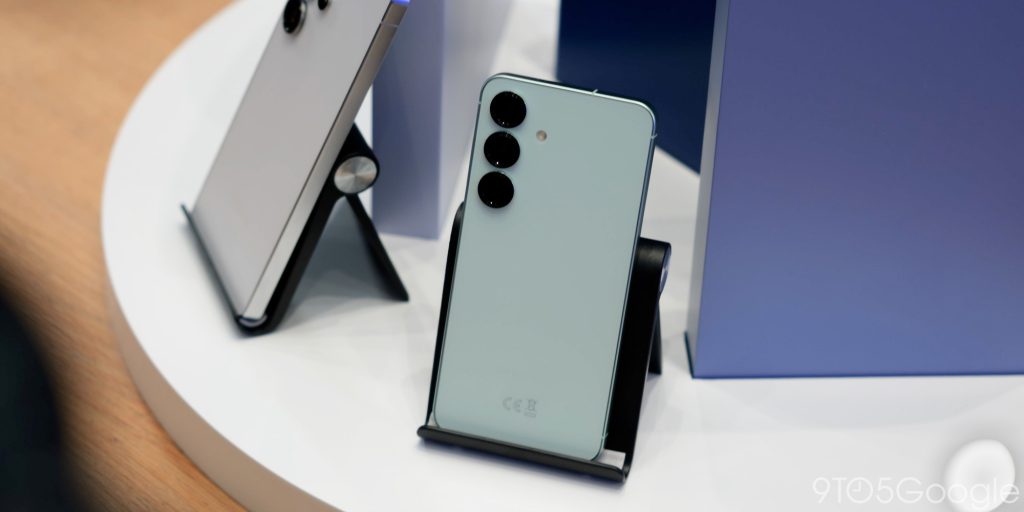
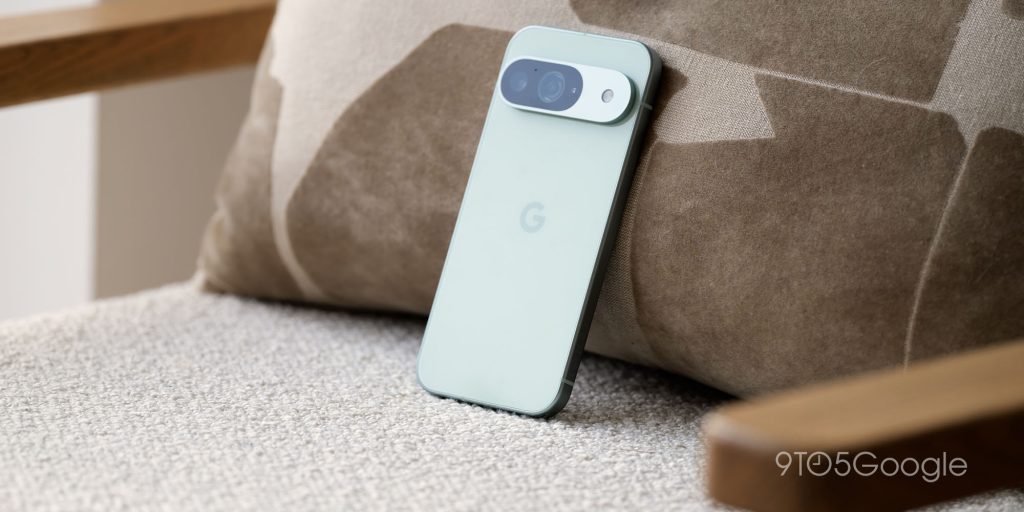
Comparing the Pixel 9 to the Galaxy S25 hardware, there is a lot to unpick as each device has a fair amount of strengths and weaknesses. Firstly, the size difference is starting to affect the pocketability a tad. I will say that on paper, the size difference seems large. Sure, there is a difference, and the Galaxy S25 is a little smaller, so that might make it a more enticing option for those wanting a more “pocketable” smartphone.
If you care about the weight of your phone, there is a 30g difference between this duo. The Galaxy S25 is very light compared to the Pixel 9. It could be owed to the smaller internal battery, but there are smaller screen bezels and a thinner profile. Save for the tiny camera rings, it’s a small slate shape. What is impressive is how well made both devices feel. In years gone by, the Pixel would have a noticeable quality gap, but Google has managed to vault that fairly fast.
| Size | 6.3-inches | 6.2-inches |
| Display | 1080 x 2424 pixels / 120Hz, Actua OLED / Gorilla Glass Victus 2 / 418 ppi / 2,050 nits | 1080 x 2,340 / 120Hz / Dynamic AMOLED 2X / 416ppi / 2,600 nits |
| Chipset | Google Tensor G4 | Snapdragon 8 Elite for Galaxy |
| RAM | 12GB | 12GB |
| Storage | 128 / 256GB UFS 3.1 | 128 / 256 / 512GB UFS 4.0 |
| Battery | 4,700mAh | 4,000mAh |
| Rear camera | 50MP wide / 48MP ultrawide | 50MP wide / 12MP ultrawide / 10MP 3X telephoto |
| Front-facing camera | 10.5MP | 12MP |
| Biometrics | Ultrasonic in-display fingerprint / Face Unlock | Ultrasonic in-display fingerprint / Face Unlock |
| Weight | 198g | 162g |
| Colors | Obsidian / Porcelain / Wintergreen / Peony | Silver Shadow / Navy / Icy Blue / Mint |
It feels like we are constantly talking about how the Tensor chip is underpowered compared to the competition – but it’s the truth. In theory, there is a huge performance gulf between the Pixel 9 and the Galaxy S25. The entire S25 lineup uses a modified Snapdragon 8 Elite chip for Galaxy phones. All you need to know is that this is a beast, and it should, well, run rings around the Pixel 9 for a long time to come. The Pixel 9 runs just fine, but if you plan to hang on to it for a few years, it could see performance degradation.
The “core” of each phone is very similar despite the chipset changes. You get 12GB of RAM and multiple storage tiers. You can get a 512GB variant of the Galaxy S25 if you want more storage, but no storage expansion is available. Other notables include the addition of Wi-Fi 7 connectivity on the Galaxy S25. It’s missing from the Pixel 9 series, which only has Wi-Fi 6E connectivity – so not quite as future-proof.
Software
For the most part, the Pixel 9 has a “cleaner” version of Android 15 installed, while the Galaxy S25 builds on that with more personalization but yet more AI options to help you get things done, tailor the experience, or just mess around with.
| Software | Shipped with Android 14 | Shipped with Android 15 w/ One UI 7.0 |
| Updates | 7 years OS and security patches | 7 years OS and security patches |
| Features | Google One VPN Titan M2 chip Gemini Nano AI wallpapers Circle to Search Add Me Pixel Studio Pixel Screenshots Satellite SOS (US only) | DeX Galaxy AI Circle to Search Gemini One UI 7.0 |
Without delving into the full software stack, Gemini and Galaxy AI provide lots more functions out of the box for the S25 lineup this year. Google has opted to keep things behind apps like Pixel Studio and Pixel Screenshots, but Samsung is putting Gemini-powered functions into the very core of the OS. We expect that to change on Pixel phones with Android 16, but Samsung has a few exclusive functions for a little while.
One of the biggest upsides is that the Galaxy S25 and Pixel 9 come with 7 years of software and security updates. That’s great for longevity or if you want to pick up a used or refurbished device later on.
Battery

There is a bit of a gulf in the battery capacities of the Pixel 9 and the Galaxy S25. At just 4,000mAh, the S25 might have a more efficient SoC, but that could cause some bottlenecks in its lifespan. We haven’t yet been able to delve too deeply into how well these two phones stack up.
| Capacity | 4,700mAh | 4,000mAh |
| Charging speed | 27W wired 21W wireless with Pixel Stand 2 | 25W wired 10W wireless charging |
The 4,700mAh battery and improved Tensor G4 efficiency are still enough to power through a long day with a little headroom to spare. Initially, I would be concerned about the Galaxy S25 as it has a power-hungry display and lots going on under the hood.
Camera
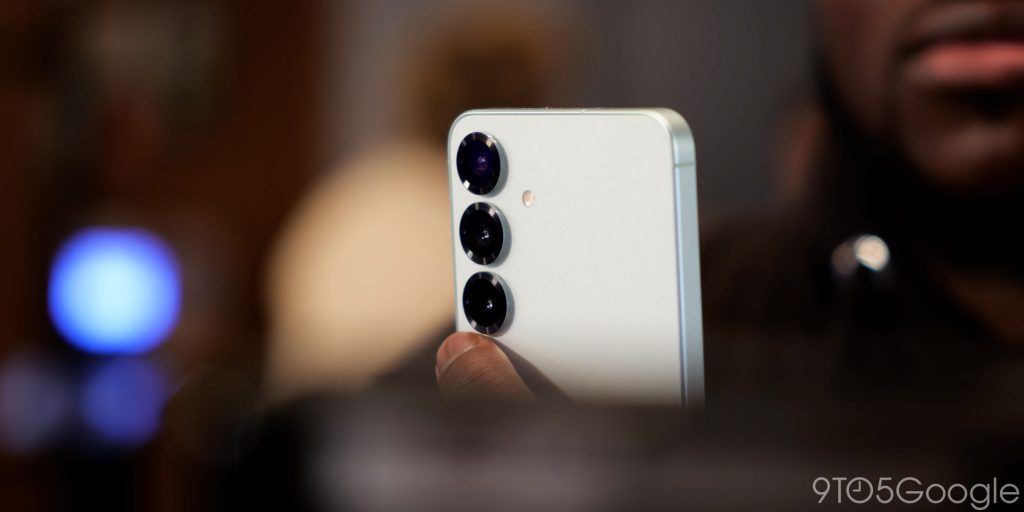

If you want a camera system that is at home in more places, the Galaxy S25 is a better pick for you than the Pixel 9. While the Pixel has a good dual camera system, you’re missing out on the ability to zoom in and get closer to the action without seeing quality degradation. The zoom range is capped at 8x, while the Galaxy S25 has a dedicated 3x telephoto zoom that can go as high as 30x with some processing helping to sharpen images above the 10x level.
| Main sensor | 50MP f1.7 | 50MP f/1.8 aperture |
| Secondary sensor | 48 MP ultra-wide-angle f2.2 125.8˚ FOV | 12MP ultra-wide-angle f/2.2 aperture 120˚ FOV |
| Tertiary sensor | ❌ | 10MP 3x telephoto f/2.4 |
| Front-facing sensor | 10.5 MP f/2.2 | 12.5MP f/2.2 |
| Camera hardware features | OIS EIS PDAF | OIS EIS PDAF |
| Camera software features | Super Res Zoom up to 8x Guided Frame 4K UHD 60fps 4K UHD 30fps (selfie) 10-bit HDR10 Video Real Tone Magic Editor Best Take Magic Eraser Photo Unblur Audio Magic Eraser | 30x zoom AI Enhance Galaxy LOG video 8-bit HDR10 Video 10-bit HDR10 Video Audio Magic Eraser |
Tuning is one of the key areas where you’ll notice a difference between images from a Pixel or Samsung phone. There are a few extra video recording modes, but little to truly separate both base model camera systems. For flexibility, it’s hard to look past the Galaxy S25, though.
Galaxy S25 vs. Pixel 9: Which is the best choice for you?
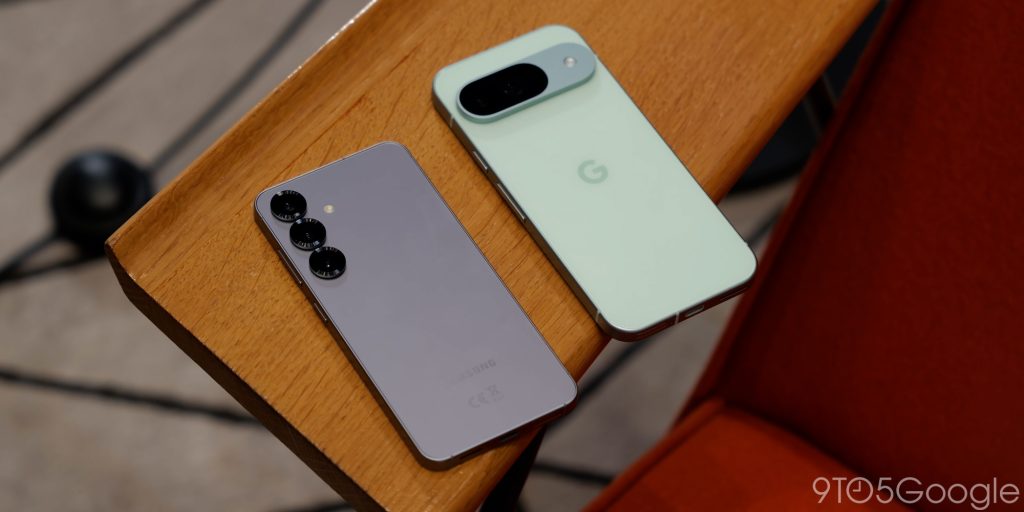
About upgrading: 9to5Google often gives specific product recommendations. Sometimes, we may suggest not upgrading, due to various reasons including, but not limited to: increased device cost, negligible performance gains, or environmental impact. Whether to upgrade is always your call, but our aim is to help you make as informed a decision as possible.
Sometimes, it’s easy to overlook the base model in favor of the big, flashy flagship within a smartphone lineup. While you’ll have lots of fun courtesy of all the high-end trappings, most people are best suited to getting the base model and saving some money.
The Galaxy S24 is a perfect example of this, as it provides the building blocks for an excellent experience and usurps the Pixel 9 in value for money factor. The cold, hard reality is that you get a lot more phones for $799 by picking up the Samsung Galaxy S25, which is the price creep from Google’s lineup this time around.
That said, if you prefer a clean software experience and want day-one updates, the Pixel 9 is tough to ignore. With price drops since launch, it becomes a great buy.
FTC: We use income earning auto affiliate links. More.

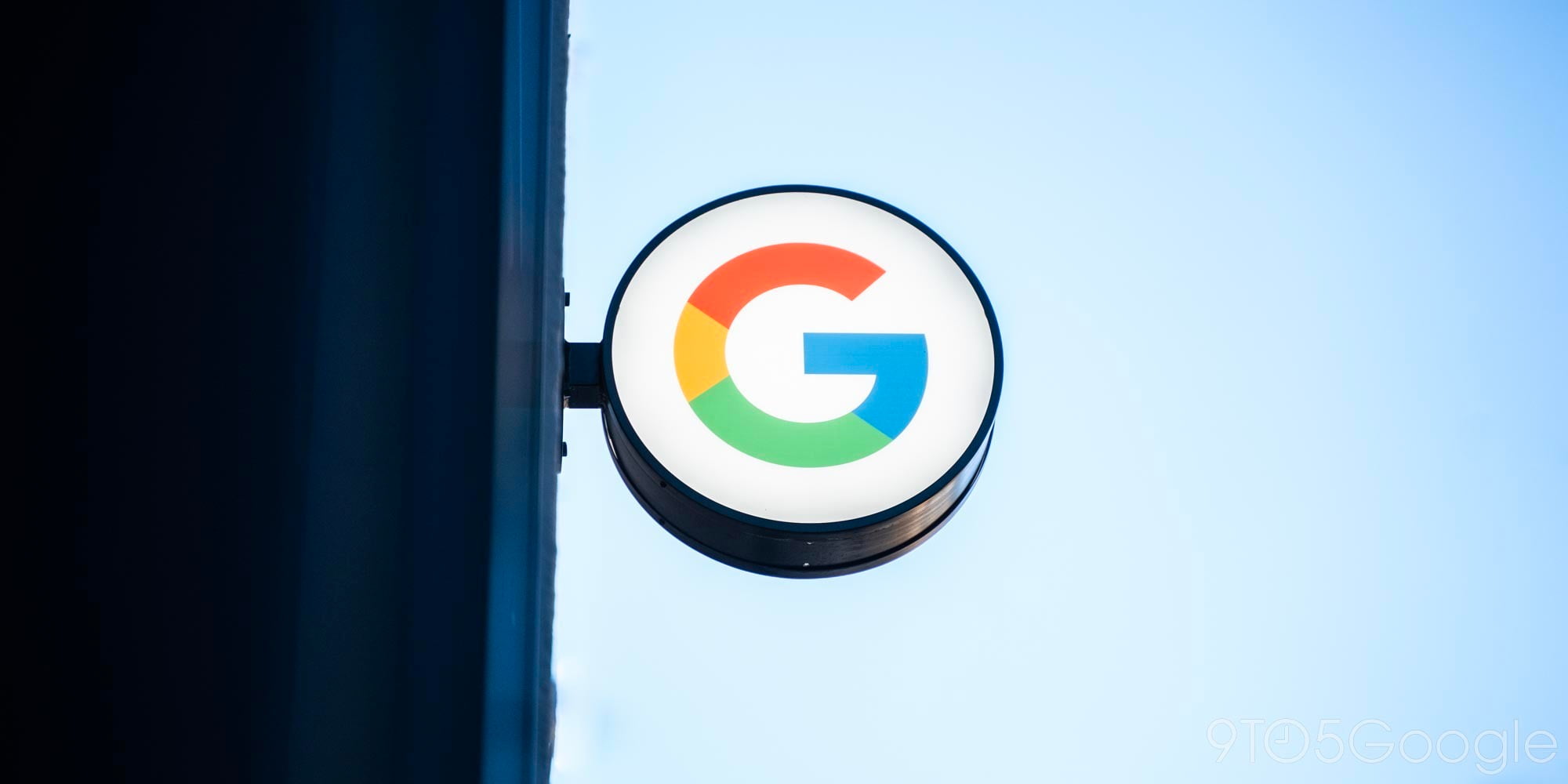 5 hours ago
4
5 hours ago
4



















 English (US) ·
English (US) ·